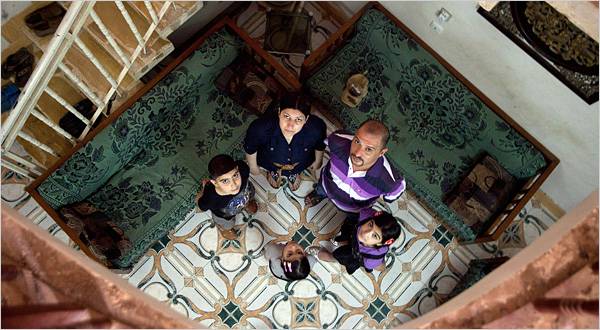Visa Delays Imperil Iraqis Who Helped U.S.

http://www.nytimes.com/2011/07/13/world/middleeast/13baghdad.html?_r=1&hp

BAGHDAD Terrorism fears in the United States are all but halting visas for Iraqis, even those who risked their lives aiding the American war effort, making them especially vulnerable ahead of the planned American military withdrawal.
The Obama administration has required new security background checks for visa applicants, reacting to a case in Kentucky in which two Iraqi immigrants were arrested for alleged ties to an insurgent group, according to American officials in Baghdad.
Advocates say that the administration is ignoring a directive from Congress to draft a contingency plan to expedite visas should those Iraqis who worked for the United States government, especially interpreters for the military, come under increased threat after American forces are drawn down at the end of the year.
This is not a priority right now for anyone in the government, said Becca Heller, who runs the Iraqi Refugee Assistance Project at the Urban Justice Center in New York. Not enough people in the Obama administration care about this topic.
The flow of Iraqis to the United States this year could be the fewest since 2007, when the Bush administration was facing an uproar for not effectively addressing the refugee crisis brought on by its invasion.
Through the first nine months of the current fiscal year, fewer than 7,000 Iraqis have been admitted to the United States. In March, just seven were admitted on a so-called special immigrant visa a class established by Congress to quickly move Iraqis in danger for having helping the American government and in April, just nine. In some months last year more than 200 arrived on such visas.
The logjam has put numerous Iraqis, like the Aeisa family, in a potentially dangerous bind.
Their story is sadly a common one: a brother was kidnapped and tortured, and the children were bullied in the schoolyard, accused of being spies even by the principal.
Last month they received the phone call they thought would never come. Their visa applications were approved, and they would soon be on their way to Arizona.
The father quit his job at Zain, a cellphone company, the kids left school, the television, furniture and air-conditioner were sold, and the remaining belongings were packed in to more than a dozen suitcases. The family of five took up temporary residence in a friends storage room.
The week before the flight, another phone call came, this time with bad news. The departure was delayed indefinitely and without explanation.
It hurts me even more than all the threats we received, said the father, who asked to be identified only as Abu Hassan for security reasons. We were expecting, This is it. The mother, Um Hassan, whose brother and father worked for the American military and now live in Arizona, said only, I feel sick.
Kirk Johnson, who worked for the United States Agency for International Development in Falluja in 2005 and then founded The List Project, a nonprofit group that aids Iraqis who worked for American-affiliated organizations, said, basically, I think where theres a way to stall the program, theres a will to do it.
Congress required the Pentagon to coordinate with the Departments of State and Homeland Security to submit a report to Congress that accounted for the number of Iraqis who worked for the United States government over the last eight years, as well as the number of those people killed or injured.
The agencies were also required to draft a plan to expedite visas for the most pressing cases, should insurgents threaten those left behind after the military leaves. But neither the Bush nor the Obama administration has met the targets set by Congress.
The numbers are stark: beginning in 2008, Congress expanded the special immigrant visa program to allot 25,000 slots over five years. After nearly four years, the government has issued roughly 7,000 in total.
The Department of Defense failed to meet a May deadline for the report on United States-affiliated Iraqis, and officials at both the Pentagon and the State Department, which was supposed to contribute to the document, cannot say when it may be completed. Mr. Johnson said the impetus for the legislation was to avoid a huge refugee crisis like the one that followed the pullout from Vietnam. A few years ago, after British forces pulled out of Basra, the southern Iraqi port city, translators were rounded up and slaughtered en masse.
http://www.nytimes.com/2011/07/13/world/middleeast/13baghdad.html?_r=1&hp

